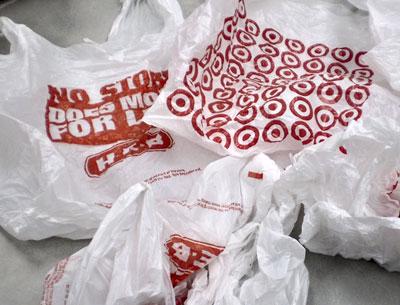Ban on Single-Use Bags

East Hampton and Southampton Towns acted in concert last Thursday to ban the distribution by retail stores of the thin plastic bags typically used to package purchased items.
Southampton’s law will take effect on April 22 next year — Earth Day — while East Hampton’s will be effective on Sept. 22, 2015, in order to provide time for stores to use their inventory of bags and “convert to alternative packaging materials,” according to the resolution approving the ban.
A ban is already in effect in the Southampton and East Hampton Villages. East Hampton Village adopted its ordinance in 2011.
Members of East Hampton Town’s litter and energy sustainability committees who spoke at a hearing last month in favor of a ban on the “single-use” plastic shopping bags cited the persistence of the bags, and their plastic, in the environment; the resources needed for their manufacture, and the short period of time for which they are typically used before they are thrown away.
The hearing was held open and reconvened last Thursday night. At both meetings, Jay M. Peltz, a vice president of the Food Industry Alliance of New York State and its general counsel, was the sole speaker against the ban, saying it has been cast as a panacea to the environmental issues raised by plastic bags without a thorough investigation into its actual effect.
The net result, he said, could be increased use of paper bags, which require extensive resources to manufacture.
East Hampton Town Councilman Fred Overton voted last Thursday against enacting the ban, because, he said this week, the board had not taken time to discuss the public hearing comments and information Mr. Peltz had provided.
“It’s a pretty significant piece of legislation,” said Mr. Overton on Monday. “I thought it would warrant a little discussion before we cast a vote.”
Mr. Overton said that, ultimately, he might have supported enacting the ban. But, he said, “I didn’t see what the rush was.” He said he was disappointed that a vote was called when normally issues are slated for further discussion at a board member’s request.
After two hearings on the proposed ban, East Hampton Town Supervisor Larry Cantwell said Monday, “the boardwas ready to act.”
Eastern Suffolk supervisors and mayors have been discussing acting regionally on a plastic bag ban during regular get-togethers, Mr. Cantwell reported earlier this year.
“When you look at what’s happening globally with plastic products in the environment . . . it’s having a devastating impact,” he said.
According to calculations by the town’s Natural Resources Department, based on a federal Environmental Protection Agency estimate that 104 billion of the bags are used each year in the United States, there are 10.7 million such bags used in the town every year.
Each is used for an average of only 12 minutes, Frank Dalene, the chairman of East Hampton’s energy sustainability committee, said at a town board meeting earlier this fall. “But they remain in our landfills for years,” he said.
The plastic, which does not disappear or break down in the environment, “is now entering the human food chain,” Dieter von Lehsten, a co-chairman of Southampton Town’s Sustainable Southampton Green Advisory Committee, had told the board.
The bag ban in the village, where Mr. Cantwell served as administrator before running for town supervisor, “worked well,” he said.
Town officials sought input from retailers and other business owners, who were largely in support, before enacting the ban last week.
Nationwide, 133 municipalities have adopted bans on the use of thin-ply plastic bags, Mr. von Lehsten said at a recent meeting. Bans on single-use plastic bags are already in place in several big cities, including Washington D.C., and Philadelphia, he said, and were passed in 103 California municipalities before a statewide ban was enacted there.
